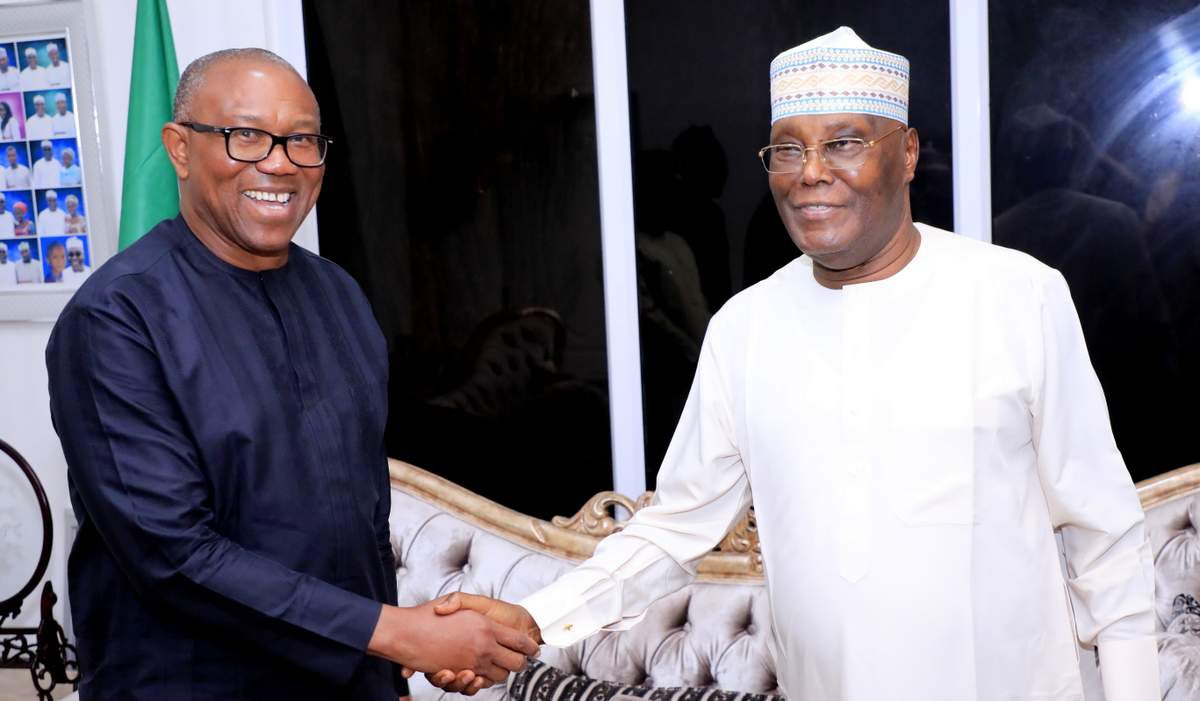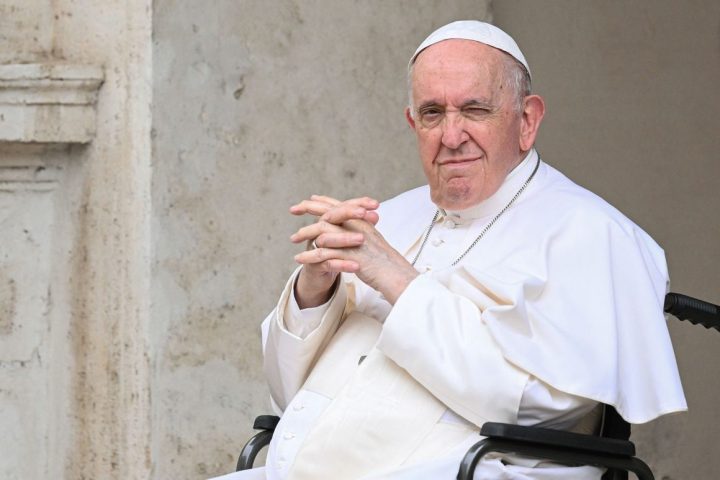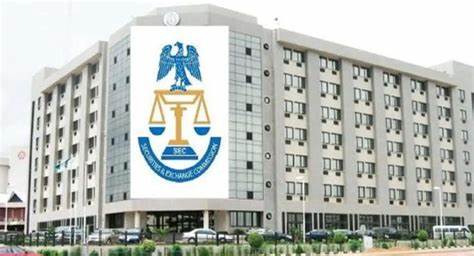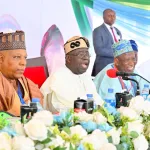Peoples Democratic Party (PDP) stalwart and 2023 presidential candidate, Atiku Abubakar, has expressed his openness to supporting a South-East candidate, possibly Peter Obi, in the upcoming 2027 elections.
Atiku, in an exclusive interview with BBC Hausa Service, reaffirmed his commitment to party decisions, stating, “If the PDP decides it’s the turn of the South-East and Peter Obi is chosen, I won’t hesitate to support him.”
Join our WhatsApp ChannelThe statement comes amid speculation about potential mergers within the opposition ahead of the next electoral cycle. Atiku hinted at the possibility of a coalition between the PDP and the Labour Party, emphasizing the importance of unity to achieve common goals. “We can merge to achieve a common goal. So, it’s possible, and nothing can stop it if we wish to achieve that,” Atiku remarked, addressing merger talks between the parties.
Regarding his own political future, Atiku remained pragmatic, deferring to party dynamics for a decision on his candidacy in 2027. “That would depend on the decision of my party. I can’t make any categorical statement on that,” he explained, highlighting the pivotal role of internal party processes in determining leadership.
The meeting between Atiku and Peter Obi this week has fueled speculation about a potential alliance leading up to the next elections. Atiku clarified that such interactions are routine among opposition leaders and serve to strengthen democratic engagement. “It’s just a normal friendly meeting that we often have, particularly among us in the opposition parties,” Atiku stated, downplaying rumors but not dismissing the possibility of future collaborations.
Peter Obi, who contested independently in the 2023 elections under the Labour Party banner after leaving PDP, met separately with Atiku and other prominent PDP leaders recently. This gathering has sparked discussions about strategic alliances and the potential impact on electoral outcomes in 2027.
Analysts have revisited the dynamics of the 2023 elections, where Atiku and Obi separately contested, resulting in a divided opposition vote. Atiku’s campaign, which garnered significant support, fell short against Bola Tinubu of the ruling All Progressives Congress (APC). Analysts speculate that a united front between Atiku and Obi could have altered the electoral landscape, potentially challenging Tinubu’s victory.
Atiku’s willingness to support a South-East candidate aligns with his longstanding commitment to party principles and broader national interests. He emphasized, “It’s the duty of the party to decide on the way to go in the next election,” reinforcing his respect for internal party democracy and collective decision-making.
As discussions around potential mergers and alliances continue, political observers anticipate further developments within Nigeria’s opposition landscape. The coming months are expected to see intensified dialogue and strategic maneuvering as parties position themselves for the 2027 elections.
The interaction between Atiku and Obi marks a significant moment in Nigerian politics, reflecting the evolving alliances and strategies among opposition figures. With both leaders acknowledging the importance of unity and strategic collaboration, the path to 2027 remains fluid, with possibilities for realignments and new political configurations shaping the electoral landscape.
However, Atiku’s stance on supporting a South-East candidate underscores his adaptability and commitment to party unity, setting the stage for potential coalition building and strategic alliances as Nigeria approaches another pivotal election cycle.
Emmanuel Ochayi is a journalist. He is a graduate of the University of Lagos, School of first choice and the nations pride. Emmanuel is keen on exploring writing angles in different areas, including Business, climate change, politics, Education, and others.







![Breaking: Tinubu Returns To Abuja After Europe Trip [Photos]](https://www.primebusiness.africa/wp-content/uploads/2025/04/Tinubu-returns-to-Abuja-Pohotos-2-720x480.jpeg)











Follow Us